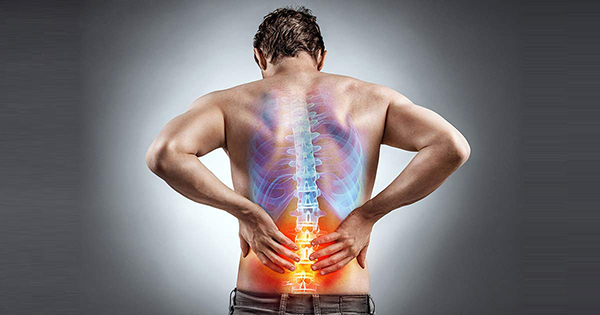Muscular Tightness Treatment in Jaipur
Muscular Tightness Treatment in Jaipur by Dr. Arvind Jaga is a well-known physiotherapist, who specializes in treating muscular tightness using a variety of techniques. Muscular tightness is a common condition that can cause discomfort and limit movement. Dr. Jaga provides personalized treatment plans to help relieve pain and stiffness caused by muscular tightness .
One of the main Muscular Tightness Treatment in Jaipur by Dr. Arvind Jaga uses is manual therapy. This technique involves using hands-on techniques to reduce pain and stiffness in the muscles and joints. Dr. Jaga uses various manual therapy techniques such as joint mobilization, soft tissue mobilization, and myofascial release to improve joint mobility and relieve muscle tension.
In addition to manual therapy, Dr. Jaga also offers exercise therapy to improve muscle function, increase range of motion, and reduce pain and stiffness. Electrical stimulation therapy may also be used to relieve pain and inflammation, while acupuncture can be used to promote relaxation and relieve pain and stiffness.
Finally, Dr. Arvind Jaga may use heat muscle stiffness therapy to increase blood flow to the affected area, which can help relax muscles and reduce pain and stiffness. With the right treatment plan, patients can improve their muscle function, increase their range of motion, and reduce their pain and stiffness. Contact Dr. Arvind Jaga today to schedule an appointment and start your journey towards a pain-free life.
There are several options for muscular tightness treatment in Jaipur, including physiotherapy, massage therapy, chiropractic care, and acupuncture.
What is Muscle Stiffness
Muscular tightness Causes
Muscular tightness can arise from various factors, each contributing to the discomfort and reduced flexibility experienced by individuals. The most prevalent causes of muscular tightness include:
Overuse or Repetitive Strain Injuries: Engaging in repetitive activities or overusing certain muscle groups can lead to tension and tightness in the muscles.
Poor Posture or Body Mechanics: Maintaining incorrect posture or body mechanics for extended periods can strain muscles, resulting in tightness and discomfort.
Inactivity or Lack of Exercise: A sedentary lifestyle devoid of regular physical activity can lead to stiff muscles and reduced flexibility.
Stress and Tension: Emotional stress and tension can manifest physically, causing muscles to tighten and leading to muscular tightness.
Dehydration or Electrolyte Imbalances: Inadequate hydration and imbalances in electrolytes can disrupt muscle function, contributing to tightness and discomfort.
Nerve Compression or Pinched Nerves: Compression of nerves or pinched nerves can cause referred pain and tightness in specific muscle groups.
Medical Conditions: Underlying medical conditions like arthritis or fibromyalgia can contribute to chronic muscular tightness.
Side Effects of Medications or Drugs: In some instances, certain medications or drugs may induce muscle tightness as a secondary effect.
It’s essential to address these factors and implement appropriate measures to alleviate muscular tightness effectively.
Muscular tightness Diagnosis
The diagnosis of muscular tightness typically commences with a thorough physical examination and a comprehensive review of the patient’s medical history. The physiotherapist will inquire about the patient’s symptoms, the onset of the symptoms, and any activities that may have triggered or worsened the condition. Additionally, various tests are conducted to assess muscle strength, range of motion, and flexibility.
In certain cases, imaging tests like X-rays, MRI, or CT scans may be recommended to identify any underlying factors contributing to the muscle tightness. Blood tests might also be performed to rule out any potential underlying medical conditions that could be causing the symptoms.
Once a diagnosis of muscular tightness is confirmed, the physiotherapist collaborates with the patient to create a personalized treatment plan based on the specific cause of the tightness. The primary goal of treatment is to alleviate pain, improve range of motion, and restore overall function. The treatment options may include manual therapy, exercise therapy, electrical stimulation, heat therapy, acupuncture, and various other approaches, depending on the individual’s condition and requirements.
Muscular tightness Treatment
Muscular tightness is a condition that can vary depending on its underlying cause. Fortunately, there are several effective treatments available to alleviate muscle tightness and provide relief. Some common treatment options include:
Physiotherapy: A qualified physiotherapist can create a personalized exercise program to stretch and strengthen tight muscles, improve joint mobility, and reduce pain.
Manual Therapy: Through hands-on techniques like joint mobilization, soft tissue mobilization, and myofascial release, a physiotherapist can effectively reduce pain and stiffness in the muscles and joints.
Heat Therapy: Applying heat to the affected area can promote muscle relaxation, increase blood flow, and reduce pain and stiffness.
Electrical Stimulation: Electrical stimulation therapy involves sending electrical impulses to the affected muscles, providing relief from pain and inflammation.
Acupuncture: This ancient practice involves inserting needles into specific points on the body to promote relaxation and alleviate pain and stiffness.
Lifestyle Changes: Making positive changes to your lifestyle, such as improving posture, staying well-hydrated, and incorporating regular exercise, can be beneficial in preventing and alleviating muscle tightness.
The treatment plan for muscular tightness is highly dependent on the underlying cause of the condition. In many cases, a combination of the above treatments may be recommended for optimal results. A physiotherapist or healthcare provider can help determine the most suitable treatment plan based on individual needs, ensuring effective and personalized care to address muscle tightness and improve overall well-being.
